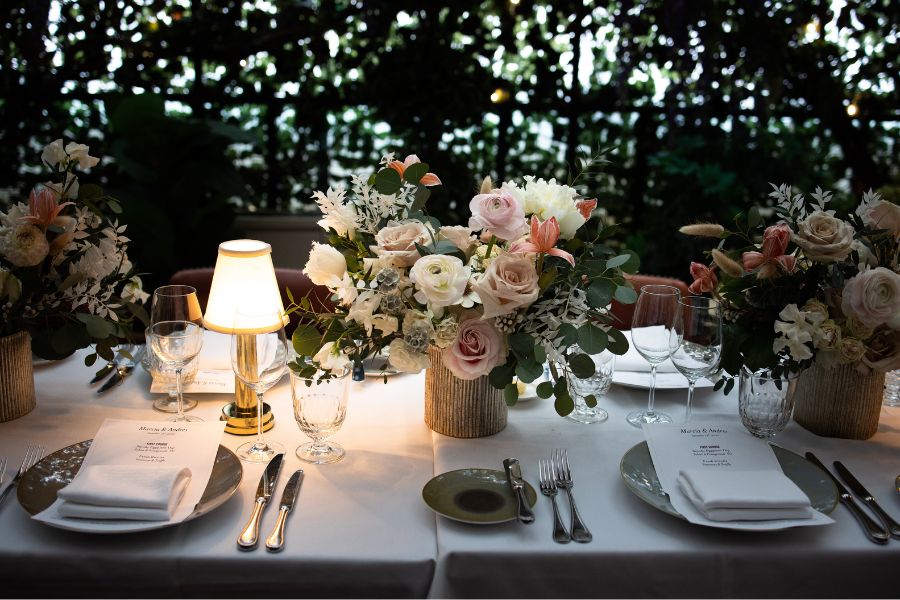Weddings
Weddings are special and momentous occasions that mark the beginning of a lifelong journey for a couple in love. They are celebrated in diverse ways around the world and are often filled with traditions, rituals, and customs that vary depending on cultural, religious, and personal preferences. Here are some key aspects of weddings to discuss:
-
Ceremonies and Traditions: Wedding ceremonies can vary widely. In some cultures, they are grand and elaborate, while in others, they are simple and intimate. The ceremony itself may be religious, civil, or a combination of both. Traditions such as exchanging vows, rings, and the pronouncement of the couple as married are common across different cultures.
-
Attire: The bride and groom's attire is a significant aspect of a wedding. Brides often wear white or other culturally significant colors, while grooms wear suits or traditional garments. Bridesmaids and groomsmen may also have specific attire to complement the couple's look.
-
Guests and Invitations: Guest lists can range from small, intimate gatherings to large, extravagant affairs. Invitations are sent out to friends and family, and they often set the tone for the event. Some couples opt for formal, printed invitations, while others choose digital or creative DIY options.
-
Venues: Wedding venues can be indoor or outdoor, such as churches, temples, beaches, gardens, ballrooms, or historic sites. The choice of venue often reflects the couple's personality and preferences.
-
Decorations: Wedding decorations play a crucial role in creating the atmosphere and ambiance of the event. Flowers, candles, drapery, and lighting are commonly used to enhance the beauty of the venue.
-
Cuisine: Food is an integral part of any wedding celebration. The menu can range from formal sit-down dinners to casual buffets or themed culinary experiences. Some couples incorporate cultural or regional dishes into their wedding feasts.
-
Music and Entertainment: Music sets the mood at weddings. Live bands, DJs, or a combination of both are typically hired to entertain guests. The first dance and other traditional dances are highlights of the evening.
-
Rituals and Ceremonies: Many weddings include special rituals or customs that hold cultural or religious significance. For example, a Christian wedding might have a unity candle ceremony, while a Hindu wedding could include the exchange of garlands or the seven steps (Saptapadi).
-
Wedding Cake: Cutting the wedding cake is a time-honored tradition that symbolizes the couple's union. The design and flavor of the cake can be highly personalized.
-
Favors and Keepsakes: Couples often provide guests with wedding favors or keepsakes to express their appreciation for attending the celebration. These can range from personalized trinkets to sweet treats.
-
Photography and Videography: Capturing the special moments of the day is essential. Professional photographers and videographers document the event so that the memories can be cherished for years to come.
-
Ceremony Officiants: Depending on the couple's religious or cultural background, the officiant could be a priest, minister, judge, or a close friend who has been ordained for the occasion.
-
Honeymoon: After the wedding, many couples embark on a honeymoon to spend quality time together as newlyweds and create lasting memories.


